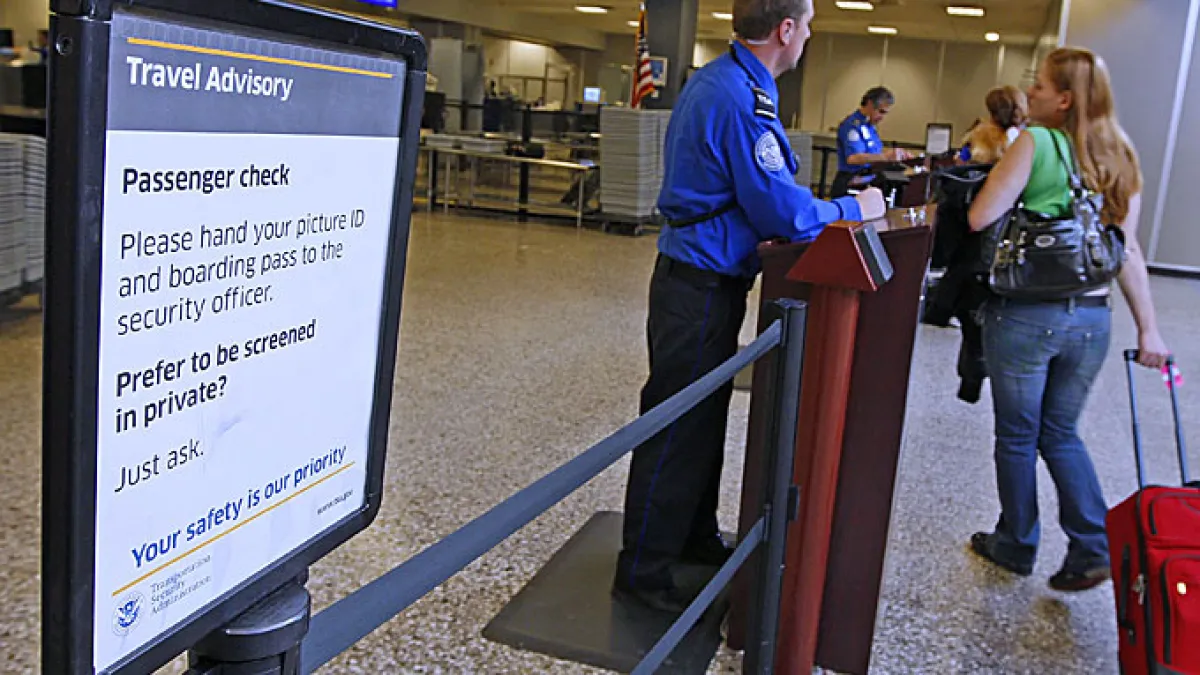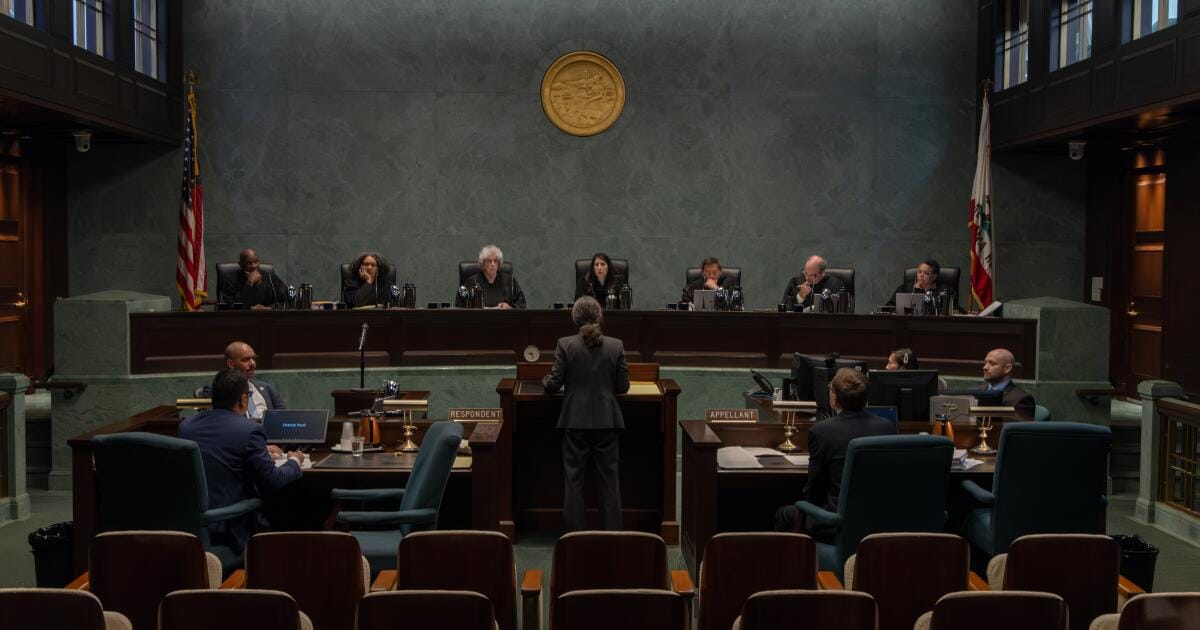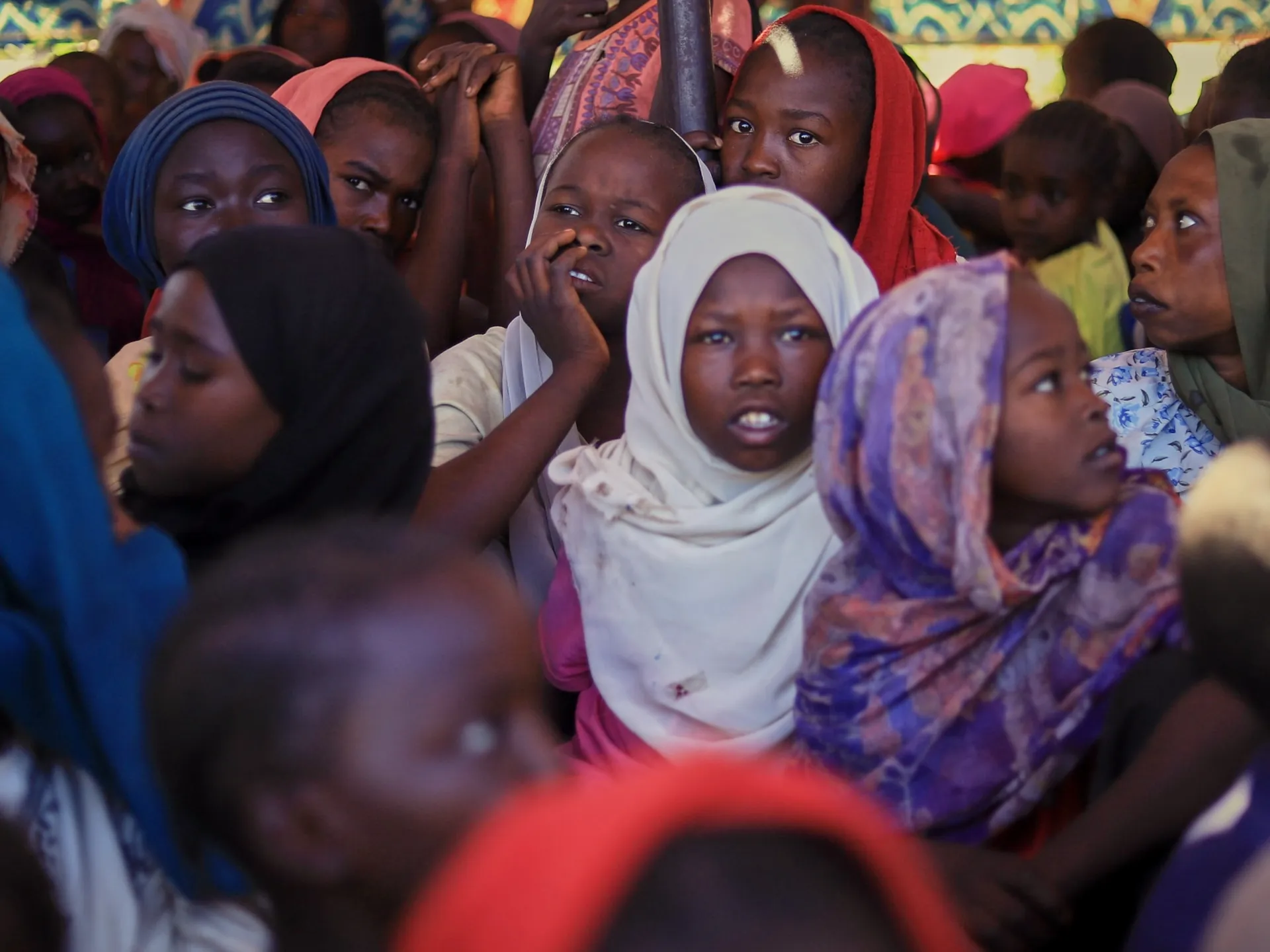Lawsuit challenges US ban on transgender TSA officers conducting pat-downs | Civil Rights News
A Virginia transportation security officer has accused the United States Department of Homeland Security (DHS) of sex discrimination over a policy that bars transgender officers from performing security screening pat-downs, according to a federal lawsuit.
The Transportation Security Administration (TSA), which operates under the DHS, enacted the policy in February to comply with President Donald Trump’s executive order declaring two unchangeable sexes: male and female.
Recommended Stories
list of 3 itemsend of list
The Associated Press (AP) news agency obtained internal documents explaining the policy change from four independent sources, including one current and two former TSA workers.
Those documents explain that “transgender officers will no longer engage in pat-down duties, which are conducted based on both the traveller’s and officer’s biological sex. In addition, transgender officers will no longer serve as a TSA-required witness when a traveller elects to have a pat-down conducted in a private screening area”.
Until February, the TSA assigned officers work consistent with their gender identity, based on a 2021 management directive. The agency told the AP that it rescinded this directive to comply with Trump’s January 20 executive order.
Although transgender officers “shall continue to be eligible to perform all other security screening functions consistent with their certifications” and must attend all required training, they will not be allowed to demonstrate how to conduct pat-downs as part of their training or while training others, according to the internal documents.
A transgender officer at Dulles international airport, Danielle Mittereder, alleged in her lawsuit filed on Friday that the new policy, which also bars her from using TSA facility restrooms that align with her gender identity, violates civil rights law.
“Solely because she is transgender, TSA now prohibits Plaintiff from conducting core functions of her job, impedes her advancement to higher-level positions and specialised certifications, excludes her from TSA-controlled facilities, and subjects her identity to unwanted and undue scrutiny each workday,” the complaint says.
Mittereder declined to speak with the AP, but her lawyer, Jonathan Puth, called the TSA policy “terribly demeaning and 100 percent illegal”.
TSA spokesperson Russell Read declined to comment, citing pending litigation. But he said the new policy directs that “male Transportation Security Officers will conduct pat-down procedures on male passengers, and female Transportation Security Officers will conduct pat-down procedures on female passengers, based on operational needs”.
The legal battle comes amid mounting reports of workplace discrimination against transgender federal employees during Trump’s second administration. It is also happening at a time when the TSA’s ranks are already stretched thin due to the ongoing government shutdown that has left thousands of agents working without pay.
Other transgender officers describe similar challenges to Mittereder.
Kai Regan worked for six years at Harry Reid international airport in Las Vegas before leaving in July, in large part because of the new policy.
Worried that he would be fired for his gender identity, he retired earlier than planned rather than “waiting for the bomb to drop”.
Regan, who is not involved in the Virginia case, transitioned from female to male in 2021. He said he had conducted pat-downs on men without issue until the policy change.
“It made me feel inadequate at my job, not because I can’t physically do it but because they put that on me,” said the 61-year-old.
Skye Perryman, president and CEO of Democracy Forward, a legal organisation that has repeatedly challenged the second Trump administration in court, called the TSA policy “arbitrary and discriminatory”.
“There’s no evidence or data we’re aware of to suggest that a person can’t perform their duties satisfactorily as a TSA agent based on their gender identity,” Perryman said.
The DHS pushed back on assertions by some legal experts that its policy is discriminatory.
“Does the AP want female travellers to be subjected to pat-downs by male TSA officers?” Homeland Security spokesperson Tricia McLaughlin asked in a written response to questions by the AP. “What a useless and fundamentally dangerous idea, to prioritise mental delusion over the comfort and safety of American travellers.”
Airport security expert and University of Illinois Urbana-Champaign professor Sheldon H Jacobson, whose research contributed to the design of TSA PreCheck, said that the practice of matching the officer’s sex to the passenger’s is aimed at minimising passenger discomfort during screening.
Travellers can generally request another officer if they prefer, he added.
Deciding where transgender officers fit into this practice “creates a little bit of uncertainty”, Jacobson said. But because transgender officers likely make up a small percent of the TSA’s workforce, he said the new policy is unlikely to cause major delays.
“It could be a bit of an inconvenience, but it would not inhibit the operation of the airport security checkpoint,” Jacobson said.
The TSA’s policy for passengers is that they be screened based on physical appearance as judged by an officer, according to internal documents. If a passenger corrects an officer’s assumption, “the traveller should be patted down based on his/her declared sex”.
For passengers who tell an officer “that they are neither a male nor female”, the policy says officers must advise “that pat-down screening must be conducted by an officer of the same sex” and contact a supervisor if concerns persist.
The documents also say that transgender officers “will not be adversely affected” in pay, promotions or awards, and that the TSA “is committed to providing a work environment free from unlawful discrimination and retaliation”.
But the lawsuit argues otherwise, saying the policy impedes Mittereder’s career prospects because “all paths toward advancement require that she be able to perform pat-downs and train others to do so”, Puth said.
According to the lawsuit, Mittereder started in her role in June 2024 and never received complaints related to her job performance, including pat-down responsibilities. Supervisors awarded her the highest-available performance rating, and “have praised her professionalism, skills, knowledge, and rapport with fellow officers and the public”, the lawsuit said.
“This is somebody who is really dedicated to her job and wants to make a career at TSA,” Puth said. “And while her gender identity was never an issue for her in the past, all of a sudden, it’s something that has to be confronted every single day.”
Being unable to perform her full job duties has caused Mittereder to suffer fear, anxiety and depression, as well as embarrassment and humiliation by forcing her to disclose her gender identity to co-workers, the complaint says.
It adds that the ban places an additional burden on already-outnumbered female officers who have to pick up Mittereder’s pat-down duties.
American Federation of Government Employees national president Everett Kelley urged the TSA leadership to reconsider the policy “for the good of its workforce and the flying public”.
“This policy does nothing to improve airport security,” Kelley said, “and in fact could lead to delays in the screening of airline passengers since it means there will be fewer officers available to perform pat-down searches”.


